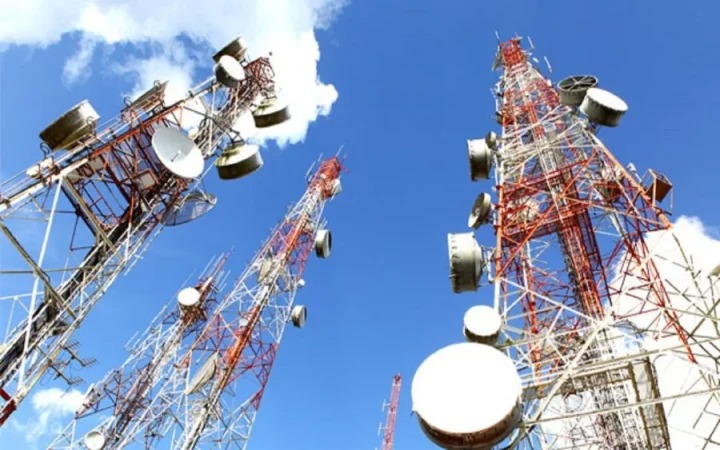Nigeria’s telecom industry is facing an alarming wave of sabotage and theft, threatening billions of naira in fresh infrastructure investments, as criminals increasingly target vital network equipment across the country.
Telecom companies are currently undertaking some of the most ambitious infrastructure expansion projects in recent history, deploying 5G systems, upgrading equipment, and expanding high-speed fiber optic networks to meet surging demand for data and digital services. These projects run into billions of naira and are vital to Nigeria’s digital economy. But these gains are now imperiled.
In a distress alert issued by the Association of Licensed Telecommunications Operators of Nigeria (ALTON), telecom firms warned that the escalating attacks on base stations and underground facilities have reached a crisis point, disrupting services, endangering critical national infrastructure, and stalling the momentum of digital transformation in Nigeria.
ALTON chairman, Engr. Gbenga Adebayo, in an interview with LEADERSHIP, said between May and July 2025 alone, operators recorded numerous incidents of vandalism across telecom sites in Rivers, Ogun, Osun, Imo, Kogi, Ekiti, Lagos, the Federal Capital Territory, and other locations.
The consequences, according to Adebayo, have been devastating, leading to widespread connectivity blackouts, prolonged service disruptions, and growing dissatisfaction among millions of mobile and data subscribers.
“Our industry has not seen this scale of investment in recent years. We are working round the clock to improve the quality of service nationwide, and we cannot afford these setbacks.
This is not just theft, it is sabotage of critical national infrastructure,” Adebayo said.
ALTON listed several high-value components routinely stolen from cell sites, including fiber optic cables, rectifiers, batteries, diesel generators, solar panels, and power cables, all of which are indispensable to maintaining uninterrupted mobile, broadband, and enterprise connectivity across the country.
“These stolen components form the backbone of our digital economy, financial services, emergency response systems, and national security communications,” the statement added.
Even more troubling is the growing black market for stolen telecom hardware. ALTON disclosed that batteries and solar panels snatched from telecom base stations are being repurposed and sold as power solutions for homes and offices. Similarly, diesel intended for powering cell sites is now being siphoned and traded illegally, the operators decried.
“This criminal market is not only fueling further vandalism, it is expanding. If you buy stolen telecom equipment, you are not just complicit, you are part of the crime,” ALTON warned.
In addition to theft, telecom operators are grappling with a new wave of network disruption caused by road construction projects. Excavation and civil works along highways and city roads are damaging underground fiber optic cables, causing unexpected downtimes and huge repair costs for operators.
“These disruptions are becoming more frequent and costly, as they are often uncoordinated and done without regard for existing telecom infrastructure,” ALTON noted.
To avert a full-blown communications crisis, ALTON has called on national security agencies, including the Office of the National Security Adviser (ONSA), the Nigeria Police Force, the Department of State Services (DSS), and the Nigeria Security and Civil Defence Corps (NSCDC), to intervene swiftly.
“We need coordinated national action by the security agencies, the government at all levels, regulators, the media, civil society, and the public. Our national security, economic stability, and digital future depend on it. The time to act is now,” Adebayo appealed.
ALTON also praised the Nigerian Communications Commission (NCC) for setting up a reporting portal: [email protected] and toll-free number 622, for citizens to report suspicious activity around telecom infrastructure.
Recall that telecom assets have been legally classified as Critical National Infrastructure (CNI) under Federal Government Gazette No. 133, Volume 108 of March 17, 2021, making the destruction of such assets a criminal offence.
In August 2024, President Bola Tinubu reaffirmed this classification by signing a new gazette, the Designation and Protection of Critical National Information Infrastructure Order, aimed at safeguarding strategic telecom infrastructure across Nigeria.
However, ALTON lamented that enforcement has been weak. “Despite multiple designations and pronouncements, vandalism remains rampant,” Adebayo said.
The group urged for stronger enforcement of the CNII Order, as well as widespread public awareness campaigns to highlight the social and economic dangers of telecom sabotage.




